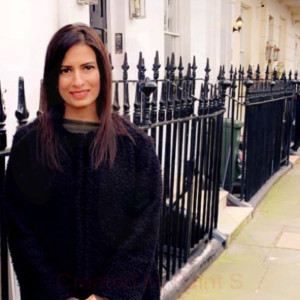The purpose of anthropology is to make the world safe for human differences
Ruth Benedict
Key Takeaways
- What Anthropology is and its 4 divisions
- Best Anthropology Books for Beginners
- Cultural, Linguistic, Physical, Archaeology: Anthropology Book recommendations by field
- Famous Anthropology authors

What is Anthropology?

Encompassing elements of other disciplines in its methodologies and analyses, anthropology is defined as the comprehensive study of humans, their societies, and their cultures and how they have developed through time.
Anthropology serves the purpose of coming to terms with the hard-hitting facts about us as humans and why we've done certain things throughout the scheme of time.
Since anthropology is such a diverse subject, it's worth stating that there are branches or subdisciplines to explore such as the following:
-Biological
As a result of the different types of anthropology that can be examined and learned more about, there are thousands of books and journals available to read.
So, check out the best Anthropology books!
What are the 10 Best Anthropology Books to Start Reading?
Living in the age of information, it's easy to get overwhelmed by all the possibilities available out there. So, how can you know what to read and study as a new anthropology student? By trusting the opinions and advice of more experienced ones in the field you desire to study.
The best Anthropology books mentioned in this article are available electronically or physically, the choice is yours.
Let's get started!
Debt: The First 5000 Years by David Graeber
Graeber's book on debt is a must-read for anyone, whether you’re interested in anthropology or not. I’m not going to summarise the gist of the book here since I strongly believe that once you start reading it, the content will speak for itself.
Graeber’s writing is witty, sharp, and momentously riveting, and if you want to change the way you view our society, its history and how debt shapes both our lived experiences and the world we live in – this Anthropology book is for you.
The fundamentals of Anthropology as a science, are very well explained by Graeber in this material:
Purity and Danger: An Analysis of Concepts of Pollution and Taboo by Mary Douglas
One of the single most important works in anthropology, and a particularly valuable read if you intend to, or are currently, studying anthropology, Douglas’s book analyses the concept of what is considered ‘dirt’ as matter out of place.
Mary Douglas spearheads the idea that what is considered ‘dirty’ and ‘polluting’ is relative to social and cultural contexts, scanning how societies classify things as clean or unclean, and how these classifications reflect underlying cultural values and beliefs.

Do Muslim Women Need Saving? by Lila Abu-Lughod
Abu-Lughod is widely regarded as one of the most popular and acclaimed anthropologists. Her work has single-handedly inspired many to read anthropology books.
Her texts on Muslim women and the veil, deconstruct the racist myths and stereotypes about Muslims that have been used to justify the War on Terror, and are written with compassion, urgency and wit.
The impact of Lila Abu-Lughod's vast literary heritage is frequently discussed by scholars and students; get to know more in-depth her work about the Arab culture in this episode of "The New Arab Voice":
Since Do Muslim Women Need Saving? is a recent release, a pdf copy of this book couldn't be found; however, it's possible to locate a tangible copy for purchase online.
Crazy Like Us: The Globalisation of the Western by Ethan Watters
This book details the Americanisation of mental illness, and its effects on non-Western individuals whose conceptions of illness, well-being and self-care are being homogenised.
Ethan Waters reviews the globalisation of western models of mental health categories to see what can be perceived and better understood.
Some past readers of this book claimed that they couldn't put it down.
Discipline and Punish by Michel Foucault
Closely related to anthropology is social sciences and Michel Foucault's Discipline and Punish is another must-read for anyone in the social sciences.
Foucault’s works are important in understanding how the state functions about who it rules over. His works will make you completely rethink how you conceptualise governance, power and surveillance; truly riveting stuff!
Foucault's book is key for political economy, media and cultural studies; an overview on the relevance of Discipline and Punish could be found here:

Anthropology and the Colonial Encounter by Talal Asad
“We have been reminded time and again by anthropologists of the ideas and ideals of the Enlightenment in which the intellectual inspiration of anthropology is supposed to lie.
But anthropology is also rooted in an unequal power encounter between the West and the Third World, which goes back to the emergence of bourgeois Europe, an encounter in which colonialism is merely one historical moment.
It is this encounter that gives the West access to cultural and historical information about the societies it has progressively dominated, and thus not only generates a certain kind of universal understanding but also reinforces the inequalities in capacity between the European and the non-European worlds (and derivatively, between the Europeanized elites and the ‘traditional’ masses in the Third World) . . .”
These are the deep words from the introduction of the Anthropology and the Colonial Encounter book by Talal Asad. This book is considered a must-read by many experts in the domain.
Imagined Communities: Reflections on the Origin and Spread of Nationalism by Benedict Anderson
An important book for anthropology beginners, especially to understand Anderson’s concept of the ‘imagined community’, which postulates the existence of imagined communities that exist as social constructs through the collective imagination of those who perceive themselves as part of those communities.
This book has found particular popularity and relevance in the areas of the nation-state, nationalism, religion and the formation of ideologies.
Beyond Culture by Edward T. Hall
Not only discussing the relevance and importance of culture but Beyond Culture is also from the renowned and acclaimed anthropologist Edward Hall. This book is a proud celebration of human capacities.
For many years, people have taken their ways for granted and have failed to realize that the world around them is vast and budding with culture and community, Beyond Culture asks us to unite and show appreciation for differences rather than tear them down.
How to Read Ethnography by Huon Wardle and Paloma Gay y Blasco
This supremely helpful guide to interpreting ethnography is a must for students of anthropology. Written by two experts in their field, How to Read Ethnography assists students to cultivate the abilities they will require to examine and understand how ethnographies are built.
Also, this book does well to encourage readers to think anthropologically and develop an anthropological imagination of their own. How to Read Ethnography should be at the top of your list!
Cultural anthropology books for beginners
Patterns of culture by Ruth Benedict
As an icon of her field, Ruth Benedict focuses this book on asking how culture shapes human behavior?
The author puts on the table the basis of cultural relativism (the belief that cultures must be understood on their own terms rather than judged by the standards of another) and analyses cultural patterns across societies, highlighting the integration of culture as a coherent system.
Benedict’s approach aligns closely with ethnography and comparative anthropology, core subfields within cultural anthropology.
The Gift by Marcel Mauss
This classic for the scholars of the subject, bridges anthropology, sociology, and economics.
The Gift has become one of the biggest object of study in the field, particularly for its influence on:
Mauss leaves us wondering, "How gifts create reciprocal obligations?", "How do they form the basis of social relationships and solidarity?"...
Structural Anthropology by Claude Lévi-Strauss
The belgian Lévi-Strauss - which life-work constituted a new offshoot of the French sociological school and left deep mark on social anthropology - approaches in this book the human culture and society through underlying structures such as myths, kinship, and language.
In the book, the author discusses how universal patterns shape cultural practices in human thought and how these are rooted in the binary oppositions of the mind (e.g., raw vs. cooked, nature vs. culture).
Claude is called the father of Structuralism, as in this work, he emphasizes the interconnectedness of all types of cultural elements and draws heavily on linguistics and semiotics, rightfully, setting the foundations to the structuralist thought.

Linguistic anthropology: book recommendations
Going Tactile: Life at the Limits of Language by Terra Edwards
This linguistic anthropology book, discusses the emergence of Protactile, a touch-based language developed by a deaf - blind community in Seattle, U.S.
It exposes the profound ways in which language and existence are intertwined, highlighting the community's journey toward a new way of being in the world.
The author's merit is the examination on her object of study and how they shifted from reliance on sighted interpreters to creating autonomous, tactile modes of communication and interaction.
years on the ethnographic research for this book
Linguistic Anthropology by Alessandro Duranti
Alessandro Duranti is certainly one of the most emblematic contemporary authors in the field. In this textbook of 1997 (one of his most well-known works), gathers more than forty years of articles on this discipline to detail the role of ethnography in linguistic analysis and explores topics such as grammar, the structure of conversations and linguistic diversity.
Duranti defines it as “an interdisciplinary field that studies language as a cultural resource and speaking as a cultural practice”.
Living Language: An Introduction to Linguistic Anthropology by Laura M. Ahearn
Ahearn's work from 2011 provides through various cases an accessible - for anthropology beginners - introduction to anthropological linguistics.
The book discusses the study of language in real-life social contexts worldwide as the author combines classic studies with contemporary scholarship, treating language as intertwined with cultural and social relations, and emphasizes analyzing language as a form of social action.
Physical Anthropology for beginners
Lucy: The Beginnings of Humankind by Donald C. Johanson and Maitland A. Edey
The author was part of the team who found a partical skeleton of approximately 3.5 million years old in the Ethopian desert.
The fossil was named “Lucy” after the Beatle’s song “Lucy in the sky with diamonds” as the archaeologists were listening to the song at the moment of the discovery; it was set to become one of the most recognizable figures of contemporary anthropology
First published in 1981, Johanson’s book still makes waves nowadays; the tale of his adventure, the discovery and analysis of the Australopithecus afarensis (“Lucy”), represents a milestone on the evolutionary history of humans.
This work, delves into paleoanthropology, a subfield of physical anthropology that studies ancient human ancestors through fossil evidence, shedding light on the origins and development of humankind.
Archaeology: 3 Books You Should Read
An Introduction to the Archaeology of Ancient Egypt by Kathryn A. Bard
Kathryn A. Bard is today a professor of Archaeology at Boston University with extensive field experience as an archaeologist; she is specialized in one of the subjects that has fascinated humanity through its history: Egypt.
This anthropology book covers:
📚 The fascinating history of Egyptology
⏰ Prehistoric and pharaonic chronology, from those dynasties to the Greco-Roman era
🗣️ An extensive overview of Egypt's ancient culture, monuments, civilization plus their language.
This great anthropology book is enriched with over 120 illustrations, including artifacts, maps, and site plans.
Archaeological Theory: An Introduction by Matthew Johnson
This anthropology book will serve you as an entry point to major concepts and ongoing debates in archaeological research.
American professor Matthew Johnson focuses his work on the archaeology of Britain and Europe from AD 1000–1800, issues of theory and interpretation, and the cultural context of archaeological practice.
In “Archaelogical Theory”, Johnson explores the increasing diversity of approaches to archaeological theory, providing a comprehensive overview of theoretical perspectives that shape our understanding of the past.
He equally takes time to go into detail about evolution of archaeological thought, from its early roots to contemporary debates.
Explore more about the origins of this branch of anthropology in this video:
The Concise Oxford Dictionary of Archaeology by Timothy Darvill
Recently deceased, Timothy Darvill succeeds to give a very complete overview of archaeology as a science, covering trends, techniques, major figures, and principal discoveries worldwide in “The Concise Oxford”.
This anthropology book serves as a quick reference guide to chronological periods and traditions and main historical figures; detailed portraits of key archaeological sites globally complete this work.
This anthropologist holds in his career very significant projects in Archaeology, including the first excavation of Stonehenge in nearly half a century taking place back in 2008.
Popular Anthropology authors for beginners
If you’re thinking about taking up anthropology at a university degree level, or you’re simply curious about the discipline, it can feel quite intimidating to figure out where to start; there's just so much reading material!
This table will help anthropology learners to filter their search and make their reading, time count. Let's take a look to one of the most renown anthropology authors of today:
| Author | Famous Work | What do they write about? |
|---|---|---|
| David Graeber | The Dawn of Everything: A New History of Humanity, Debt: The First 5000 | Already mentioned before in this article, some may classify him as an unconventional anthropologist. Graeber is one of the most popular in his field thanks to his critical analysis of capitalism, bureaucracy, and power structures. He often challenges conventional wisdom and advocated for alternative social and economic models. |
| Yuval Noah Harari | Sapiens: A Brief History of Humankind, Homo Deus: A Brief History of Tomorrow | Very well-known worldwide and with some best sellers in his catalogue, the Israeli historian and philosopher blends history, anthropology, and biology to explore the past, present, and future of humanity. His work has garnered attention for its sweeping and thought-provoking narratives. |
| James C. Scott | Seeing Like a State: How Certain Schemes to Improve the Human Condition Have Failed | This political scientist and anthropologist has written extensively on power, knowledge, and resistance, especially exploring how state-led development projects often fail due to their disregard for local knowledge and their tendency to simplify complex social realities. |
| Clifford Geertz | The Interpretation of Cultures | A prominent cultural anthropologist whose work emphasized the importance of understanding culture through its symbols and meanings. Geertz argued that culture should be interpreted like a text, paying attention to the nuances of language, ritual, and everyday life. |
| Marshall Sahlins | Stone Age Economics | Sahlins is often recognized for his work on economic anthropology and the critique of Western economic assumptions. |
| Jared Diamond | Guns, Germs, and Steel: The Fates of Human Societies, Collapse: How Societies Choose to Fail or Succeed | Evolutionary biologist and physiologist, Diamond explores in his literature, environmental and historical factors that have shaped human societies, often tackling big-picture questions about human history and the challenges facing our planet. |
| Brené Brown | Daring Greatly, The Gifts of Imperfection | While not strictly an anthropologist, her work draws on social science and has significant overlap with cultural anthropology, exploring how emotions and social connections shape human experience. Brown - a research professor - is well-known for her research on vulnerability, shame, and courage. |
| Scott Atran | In Gods We Trust: The Evolutionary Landscape of Religion | Atran focuses his work on religion, terrorism, and decision-making, also exploring the psychological and cultural factors that influence religious beliefs and behaviors. |
| Helen Fisher | Anatomy of Love, Why We Love: The Nature and Chemistry of Romantic Love | Her work explores the biological and evolutionary underpinnings of romantic love and attraction. With a double career as an anthropologist and biological anthropologist her research on human sexuality, love, and relationships, is also widely recognised. |
There you have it, the top ten books that cover topics of anthropology. We highly recommend reading these books before starting your course in anthropology.
As a way of conclusion, it's worth stating that anthropology doesn't have to be an overwhelming subject when there are so many helpful resources. Happy reading!
Summarise with AI:
















Thank you for allowing me to read about your anthropologyical materials.